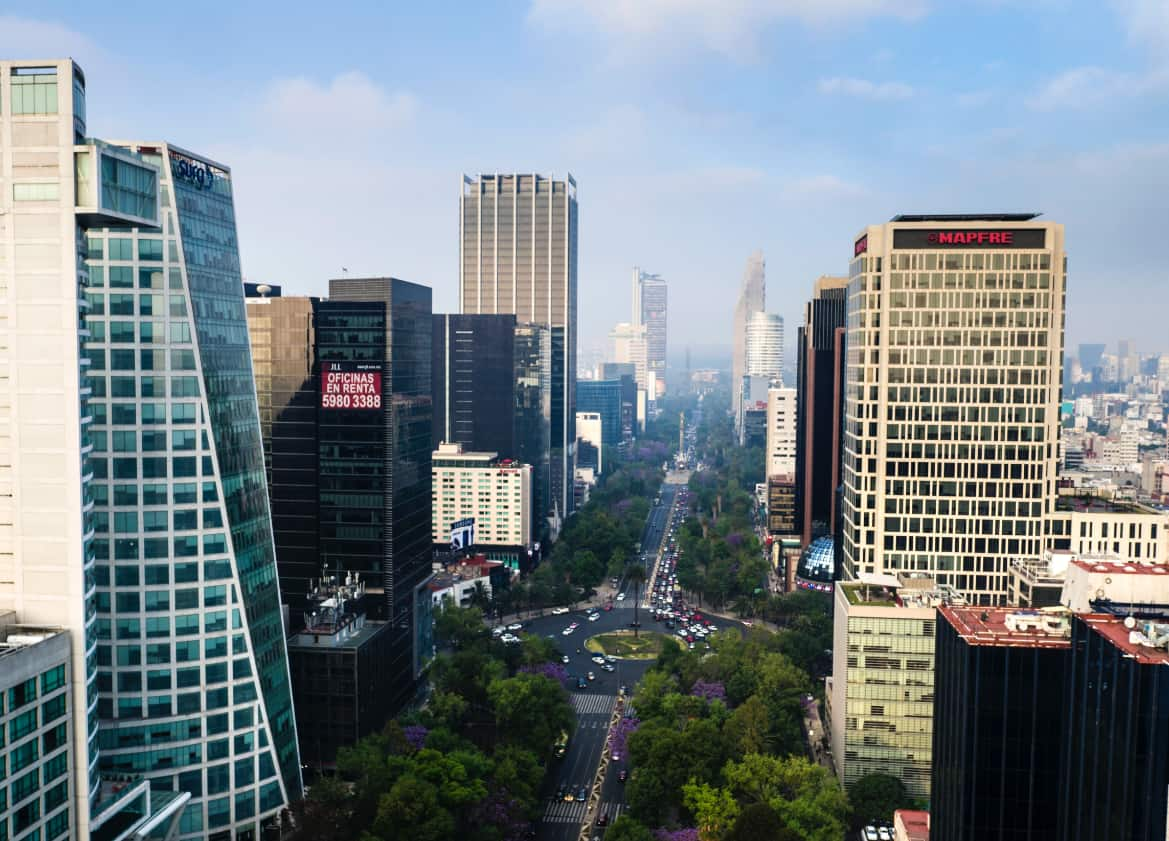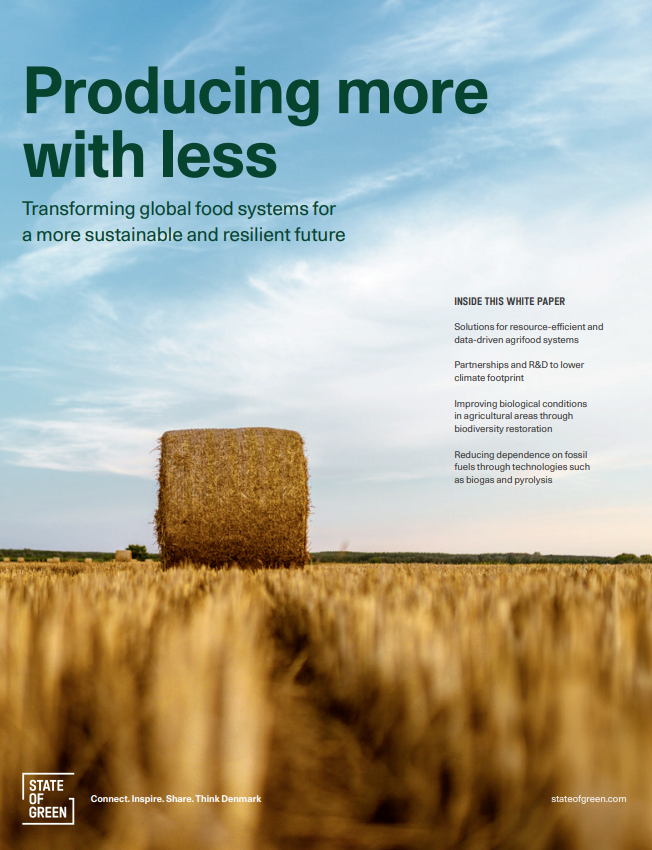News
Energy efficiency in industry
Danish approach inspires Mexican industry giants to enroll in energy efficiency programme


Several Mexican companies have signed a voluntary agreement with the Mexican government to invest significantly in energy efficiency over the next three years. The agreement scheme is inspired by a similar Danish approach.
The companies are well-known and include Nestlé, Bimbo and Audi and have multiple production sites throughout Mexico. Once fully implemented, the energy savings will cause a reduction in annual emissions from these companies of more than 55,000 tons of CO2e. This corresponds to the annual emissions from 12.000 Danish households. With this first ignition, CONUEE, the federal government agency for energy efficiency in Mexico, is confident that more voluntary agreements will be signed in the nearest future and the amount of energy savings will multiply.
-Related news: New Danish-Mexican study: Energy storage could cut 63 million tonnes from Mexico’s CO2 emissions
The agreements became official during an online ceremony on 5 March 2021, concluding the Mexican Industrial Energy Efficiency Week hosted by CONUEE. During the week, The Danish Energy Agency had the opportunity to present Danish experiences in energy efficiency to a wide audience of companies and government officials as part of the Danish-Mexican Energy and Climate Partnership Programme.
From 2 to 16 enterprises as signatories
After a trial period with two enterprises participating in the scheme between 2017 and 2020, the total energy savings were 102 GWh, which corresponds to 23,400 tons of CO2e reduction. Another 14 agreements have now been signed by some of the most energy intensive enterprises in Mexico, including producers of cement, steel, glass, automobiles, and coffee powder.
Through these new agreements, commitments were made to implement 137 energy efficiency projects over the next three years. These projects require investments equivalent to approx. EUR 15 million. By 2024, these investments will lead to energy savings of 200 GWh annually.
Danish experiences with energy efficiency policies useful in Mexico
The Danish-Mexican Energy and Climate Partnership Programme supports Mexico’s goals for sustainable growth and development. Sharing experiences from pursuing energy efficiency improvements in Denmark and offering expertise in this area has been key in the collaboration with Mexican energy authorities since 2014. Voluntary agreements with industrial entities have been part of the Danish Energy Agency’s toolbox since the early 1990s and have proven to be one of the most cost-effective regulatory measures to help spur energy efficiency investments amongst industrial companies in Denmark. In 2016, a delegation from CONUEE visited the Danish Energy Agency and a number of Danish industries engaged in a similar energy efficiency scheme.
-Related news: Denmark strengthens green partnerships with China, Vietnam, Mexico, South Africa
"While Denmark’s GHG emissions are quite modest on a global scale, our green transition experiences, competencies and technological solutions [can] have a much greater impact if they can inspire and benefit green transition initiatives in other countries"
- Martin Hansen, Danish Energy Agency
“Denmark has continuously pushed the finish line and have now set the challenging goal of cutting greenhouse gas emissions by 70 per cent in 2030 compared to emissions in 1990. It requires the proactive engagement of industrial and manufacturing sectors, outlining how to reach the national climate goal through green growth, green export and green employment in Denmark. While Denmark’s greenhouse gas emissions are quite modest on a global scale, our green transition experiences, competencies and technological solutions have the opportunities of much greater impact if they can inspire and benefit green transition initiatives in other countries. The results from the collaboration between Mexico and Denmark are a strong example of this,” said Martin Hansen, Vice-Director, Danish Energy Agency.
A "giant step" for national efforts
While participation in the Mexican agreement scheme is voluntary and not associated with energy tax reductions like in Denmark, commitments to reduce energy intensity made through the agreements are binding, and their compliance must be verified.
”Voluntary agreements [...] with some of the largest energy users in Mexico represents a giant step for national efforts to advance in a more energy efficient and a climate responsible economy."
- Odón de Buen, CONUEE
”Voluntary agreements for energy efficiency actions with some of the largest energy users in Mexico represents a giant step for national efforts to advance in a more energy efficient and a climate responsible economy. It also brings CONUEE’s portfolio of programmes with industry to a new level. Designing a programme with this significant scope and having reached this number of companies could not have been possible without the technical support and close collaboration of the Danish Energy Agency. We are very grateful for this support and I give our Danish colleagues significant credit for this accomplishment,” said Odón de Buen, the Director General of CONUEE.
The Danish Energy Agency has supported CONUEE, responsible for managing the scheme of voluntary agreements, in preparing for administering this and in reaching out to companies encouraging them to participate in the scheme. This was accomplished through energy audits and a series of technical workshops for companies representing the main industrial activities in Mexico.
Mexico must continue to increase energy efficiency to achieve climate goals
Mexico ranks as the 11th largest economy and the 12th largest emitter of greenhouse gases in the world. It is also amongst the largest crude oil producers. The Mexican economy is highly dependent of fossil fuels in the energy, transport and manufacturing industry, and Mexico is home to production facilities of some of the largest and most energy intensive industries in the world.
-Related news: Mexico inspired by Danish solutions while investing heavily in renewables
As part of the Paris agreement, the country has set some ambitious climate targets, including a reduction of CO2 emissions by 22 per cent by 2030. Over the past 10 years, Mexico has reduced its energy intensity by an average of 1.3 per cent annually. While this is a solid reduction, it is still behind the national goal of 1.9 per cent, and the Government has set an aspirational target raising the goal to 2.2 per cent annually for the period 2020 to 2035.
Mexico’s largest energy consuming facilities in the manufacturing industry account for nearly one third of the national energy demand. The new voluntary agreement scheme could play an important role in reducing the energy intensity and has already caught the attention of some of the biggest industry leaders in Mexico.
-Related State of Green white paper: Sustainable Industries - Danish insights about energy, water and resource efficiency in industries
Facts
- The climate and energy collaboration program with Mexico is financed by the Danish Ministry of Foreign Affairs as part of the Danish Energy Partnership Programme (DEPP) that includes partnerships with Mexico, China, Vietnam and South Africa. DEPP is financed through the Danish Climate Envelope.
- The Mexican-Danish cooperation on energy and climate change mitigation was initially launched in 2014 and focuses on supporting Mexico in fulfilling the Paris Agreement and the UN's global goals for energy and climate. The collaboration programme is implemented by the Danish Energy Agency with support from Denmark’s embassy in Mexico City.
- As part of the cooperation, the Mexican National Commission for Efficient Use of Energy for Energy Efficiency (CONUEE) and the Danish Energy Agency are implementing an effort on voluntary agreements on energy efficiency in the industry.
- The Danish Energy Agency cooperates with 16 countries, which together account for more than 60 percent of the global CO2 emissions from the energy sector. These government-to-government collaborations contribute to reducing greenhouse gas emissions globally and help countries build capacity and transition to low carbon societies.
Source
Photo by carlos aranda on Unsplash
You should consider reading
publications
Resource efficient production
+15
Producing more with less
29 November 2023News
Energy efficiency in industry
+3
New coalition aims to make zero-emissions shipping plain sailing
2 October 2019solutions
Energy efficiency in industry















